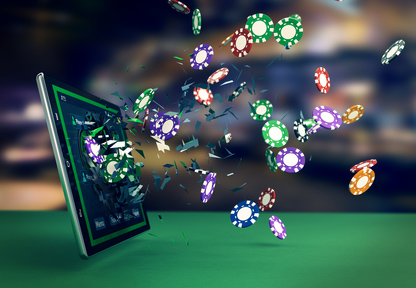There was a humongous buy-in by an Australian gambling game maker recently, and it might make the case for taking part in the gambling sphere. Aristocrat Leisure announced last week that it would be purchasing the rights to social games by Big Fish Games, and it cost them $990 million dollars.
Big Fish is not new to this kind of deal, of course, in fact, this is the second one that nearly breached the billion dollar marker in just a few short years as in 2014, Churchill Downs purchased the rights to the games for $885 million dollars. Aristocrat Leisure surely saw the same potential as the owner of the Kentucky Derby did then, and it is nearly certain that the future of gambling is becoming more in tune with the public’s love of social media as it works to mesh the two with their new acquisition.
An analyst at Ellers and Krejcik Gaming by the name of Adam Krejcik recently also released a report that analyzed the ins and outs of the merger. The report states that through the last 12 months, Aristocrat’s game division generated approximately $292 million dollars without including the acquisition of Big Fish, which in itself was a 41% increase from the year prior. Further detailing Aristocrat’s revenue, Ellers and Krejcik stated that they generated $93 million of that total just within the third quarter, a staggering increase that was about 63% higher than the previous year.
Aristocrat began making gaming and gambling machines in 1953 and to date employs over 5,000 employees, and with their recent acquisitions, they are showing no signs of slowing down anytime soon; However, these recent deals still place them behind social casino games leader, Playtika.
Krajcik explained that between the acquisition of Big Fish Games and Plarium, Aristocrat enters the realm of digital business and social gaming with a bang and the deals should generate Aristocrat approximately $1.1 billion dollars in revenue and over $250 million dollars in profit before tax in the year to come. Not only does it place ARistocrat second in social gambling gaming but it further expands the business into global markets otherwise untapped.
While the deal is still too close, it’s coming up soon and is intended to take place officially in the first quarter of 2018, Aristocrat is said to potentially become a big competitor in the gambling game circle and will soon rival Zynga, a company that currently yields a market value of $3.5 billion dollars.
The question that remains is why Churchill Downs decided to sell off its share of Big Fish Games so soon after acquiring them, to begin with, particularly if the future of these types of mergers are seen to be such a lucrative business proposition as Ellers and Krejcik claim.
Digital gambling is a growing scene, but there needs to be careful consideration about the types of games young users are drawn to and prefer to play. The acquisition of social gaming at the very least offers some diversification and expands the gambling business into this realm with the hopes that social gamers may one day turn to digital gambling as an alternative.
As far as the breakdown goes, Big Fish offers premium paid mobile games which are 18% of the companies bookings, while social casino games generate 42% of bookings and social games are right on the heels with 40% of bookings. The company’s seven hundred employees include five in-house development studies in Oakland, California, and Seattle. Big Fish Casino regularly hits the top five grossing applications in the United States due to its regular consumer base that enjoys its social casino game variety.
According to Krejcik, despite everything, the merger still has numerous risks associated with it. Now, Aristocrats studios scale the globe with properties in San Francisco, London, Seattle, Oakland, Israel, and Ukraine. It gives Aristocrat the ability to diversify its business and revenue stream across the digital sphere with ease making it a top contender against competitors like Huuuge Games and Scientific Games who recently raised $50 million dollars for social casino gaming.

